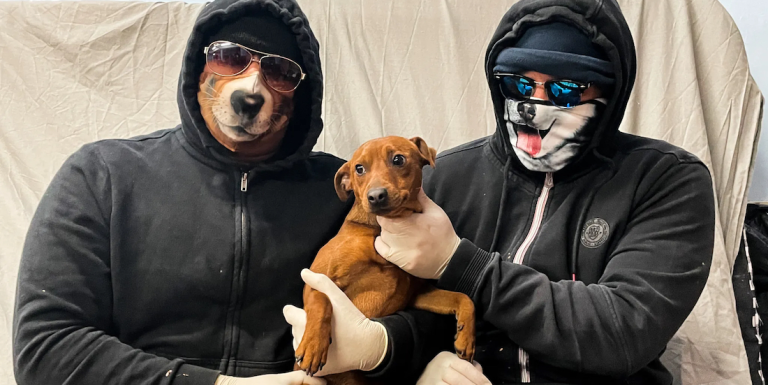
Organized criminal enterprises profit from illegal puppy mills and cross-border smuggling operations throughout Europe
Paris – The European Union’s open borders, designed to facilitate legitimate trade and travel, have inadvertently created a lucrative highway for organized criminal networks trafficking dogs across national boundaries. These sophisticated operations, collectively known as the “European Dog Mafia,” generate millions of euros annually while subjecting countless animals to deplorable conditions and unsuspecting families to heartbreak.
The Scale of Criminal Operations
Recent investigations by European law enforcement agencies reveal a disturbing network of interconnected criminal enterprises operating across multiple E.U. member states. These organizations exploit regulatory gaps between countries, moving puppies from substandard breeding facilities in Eastern Europe to affluent markets in Western European capitals.
The European Anti-Fraud Office estimates that illegal dog trafficking generates approximately 1.3 billion euros annually across the continent. Unlike traditional smuggling operations, these networks have adapted to exploit the emotional attachment people form with pets, making detection and prosecution particularly challenging for authorities.
Criminal organizations typically source puppies from overcrowded, unsanitary breeding facilities in countries with weaker animal protection laws. These “puppy mills” prioritize quantity over animal welfare, often separating puppies from their mothers too early and failing to provide adequate veterinary care or proper socialization.
Cross-Border Smuggling Methods
The trafficking networks employ sophisticated logistics systems that rival legitimate commercial operations. Puppies are transported in specially modified vehicles designed to conceal dozens of animals in cramped, poorly ventilated compartments. Many animals do not survive the journey, with mortality rates reaching 30% in some documented cases.
Border control authorities report that smugglers frequently use forged vaccination records and health certificates to bypass veterinary inspections. The animals are often given sedatives to keep them quiet during border crossings, further compromising their health and survival prospects.
Once across borders, the puppies are distributed through seemingly legitimate pet shops, online marketplaces, and direct sales. The criminal networks have established sophisticated money laundering operations to disguise the profits from these activities, often investing proceeds in real estate and other legitimate businesses.
Impact on Families and Communities

The human cost of these operations extends far beyond the immediate animal welfare concerns.
Families who purchase these trafficked puppies often face significant veterinary expenses when the animals develop serious health problems shortly after purchase.
Many of these dogs carry infectious diseases that can spread to other pets and, in some cases, pose risks to human health.
Veterinary professionals across Europe report increasing numbers of puppies presenting with severe health issues consistent with poor breeding conditions and inadequate early care.
These animals frequently require extensive medical treatment, and many do not survive despite intensive veterinary intervention.
The emotional trauma experienced by families, particularly children, when their new pets become seriously ill or die cannot be quantified in economic terms. These experiences create lasting psychological impacts and erode public trust in legitimate pet acquisition channels.
Law Enforcement Response and Challenges
European law enforcement agencies have intensified efforts to combat these criminal networks, but face significant operational challenges. The International Criminal Police Organization has established specialized task forces focusing on animal trafficking, but the cross-border nature of these crimes complicates investigation and prosecution efforts.
Recent successful operations have demonstrated the scale and sophistication of these networks. In March 2024, a coordinated operation across seven E.U. countries resulted in 89 arrests and the seizure of more than 2,400 animals. However, experts believe this represents only a fraction of the total criminal activity in this sector.
The profits from dog trafficking often fund other criminal enterprises, including drug smuggling and human trafficking. This interconnection makes dismantling these networks a priority for European security agencies, but also increases the complexity of investigations.
Building Stronger Protections
Consumer education represents a critical component in combating these criminal enterprises. Animal welfare organizations emphasize the importance of purchasing pets only from verified, licensed breeders who can provide complete health and vaccination records.
Potential pet owners should insist on visiting breeding facilities in person and meeting the puppy’s mother before completing any purchase. Legitimate breeders welcome such visits and provide transparent information about their animals’ care and breeding practices.
European lawmakers are considering harmonized regulations that would standardize animal welfare requirements across all member states, eliminating the regulatory arbitrage that these criminal networks exploit. Such measures would require significant coordination between national governments but could substantially reduce the profitability of illegal trafficking operations.
75-Word Summary
European criminal networks are exploiting open borders to traffic puppies from substandard Eastern European breeding facilities to Western markets, generating over one billion euros annually while subjecting animals to deplorable conditions. These sophisticated operations use forged documents and modified vehicles to smuggle puppies across borders, with mortality rates reaching thirty percent. Law enforcement agencies have intensified efforts, conducting coordinated operations resulting in dozens of arrests, but the cross-border nature complicates investigations.